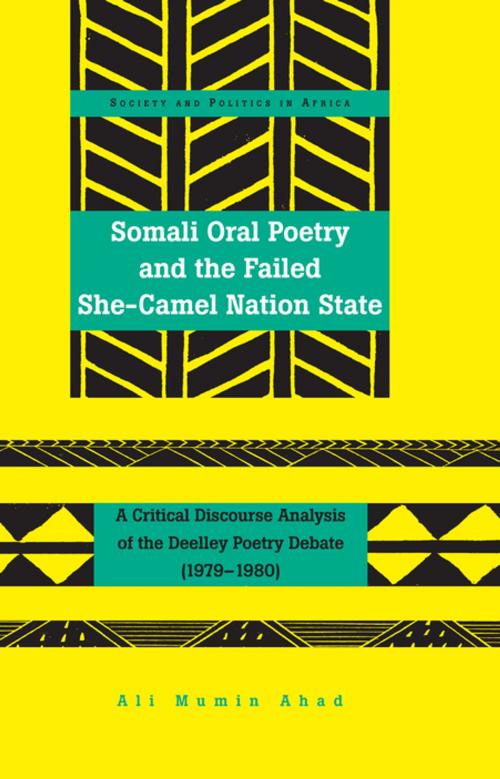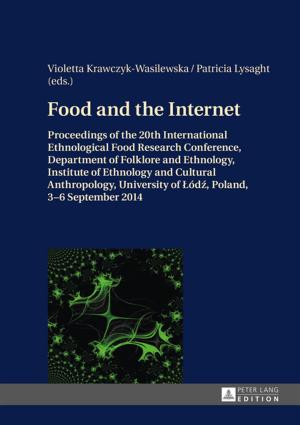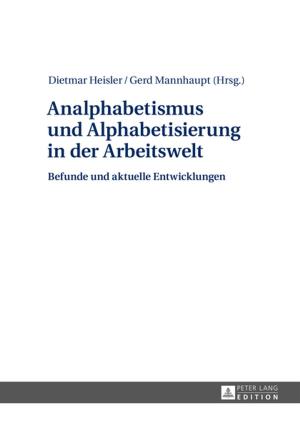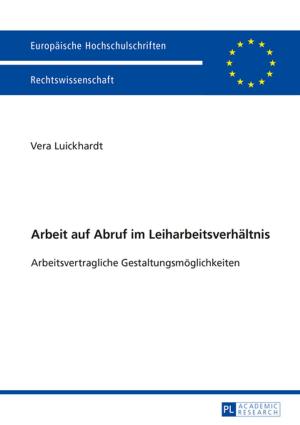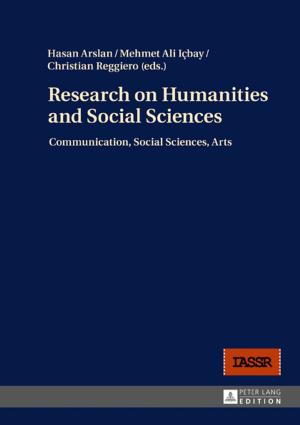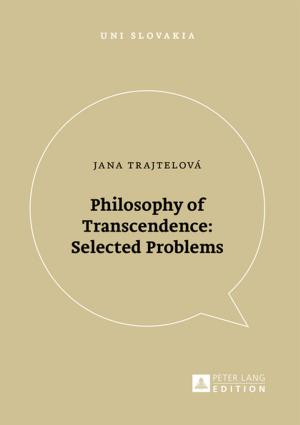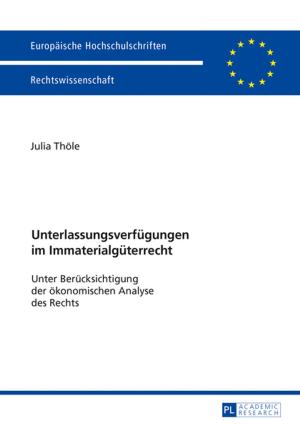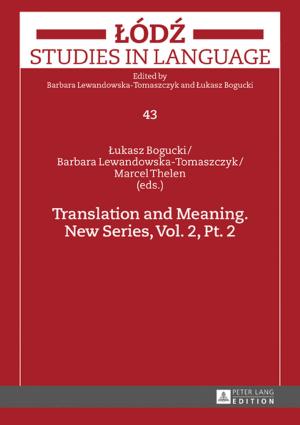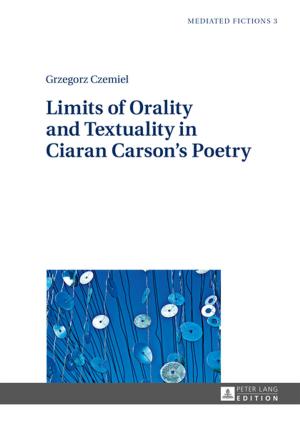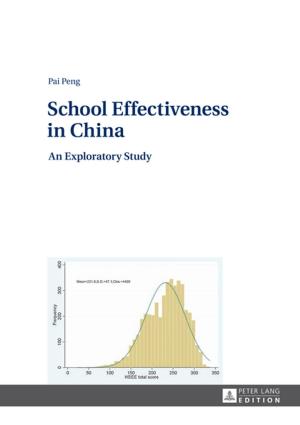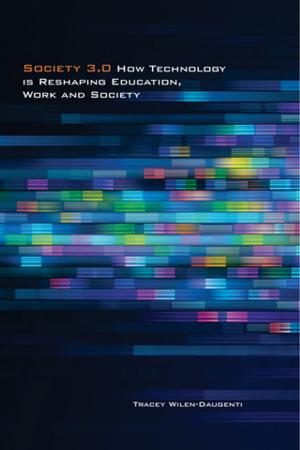Somali Oral Poetry and the Failed She-Camel Nation State
A Critical Discourse Analysis of the Deelley Poetry Debate (19791980)
Nonfiction, Reference & Language, Language Arts, Public Speaking, Social & Cultural Studies, Social Science, Anthropology, History| Author: | Ali Mumin Ahad | ISBN: | 9781454196747 |
| Publisher: | Peter Lang | Publication: | May 31, 2015 |
| Imprint: | Peter Lang Inc., International Academic Publishers | Language: | English |
| Author: | Ali Mumin Ahad |
| ISBN: | 9781454196747 |
| Publisher: | Peter Lang |
| Publication: | May 31, 2015 |
| Imprint: | Peter Lang Inc., International Academic Publishers |
| Language: | English |
Somali Oral Poetry and the Failed She-Camel Nation State: A Critical Discourse Analysis of the Deelley Poetry Debate (1979–1980) examines the most expressive medium in Somali culture and politics, that is, oral poetry, in its ideological and discursive dimension. Oral poetry has a formidable impact on Somali society and its internal dynamics.
Somali Oral Poetry is the first critical discourse analysis of the connection between oral poetry and politics in Somalia. The book brings out contradictions and conflicts between the ways of thinking of a society structured in clans and a rightful claim for nationhood and the state of law. In addition, it highlights the difficulty the society finds in renouncing clan mentality that requires loyalty to the clan rather than to the State.
The present volume illuminates, through the critical analysis of the Deelley poetry debate, the circumstances and issues that preceded the civil war in Somalia. Therefore, the book is of particular interest for its original explanation and understanding of the extraordinary subsequent failure of the State in Somalia.
Somali Oral Poetry and the Failed She-Camel Nation State: A Critical Discourse Analysis of the Deelley Poetry Debate (1979–1980) examines the most expressive medium in Somali culture and politics, that is, oral poetry, in its ideological and discursive dimension. Oral poetry has a formidable impact on Somali society and its internal dynamics.
Somali Oral Poetry is the first critical discourse analysis of the connection between oral poetry and politics in Somalia. The book brings out contradictions and conflicts between the ways of thinking of a society structured in clans and a rightful claim for nationhood and the state of law. In addition, it highlights the difficulty the society finds in renouncing clan mentality that requires loyalty to the clan rather than to the State.
The present volume illuminates, through the critical analysis of the Deelley poetry debate, the circumstances and issues that preceded the civil war in Somalia. Therefore, the book is of particular interest for its original explanation and understanding of the extraordinary subsequent failure of the State in Somalia.
